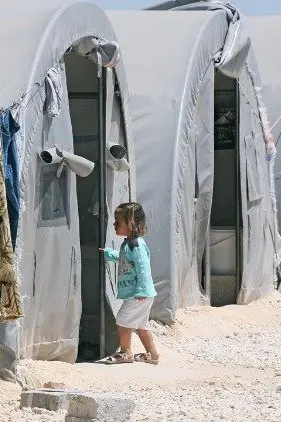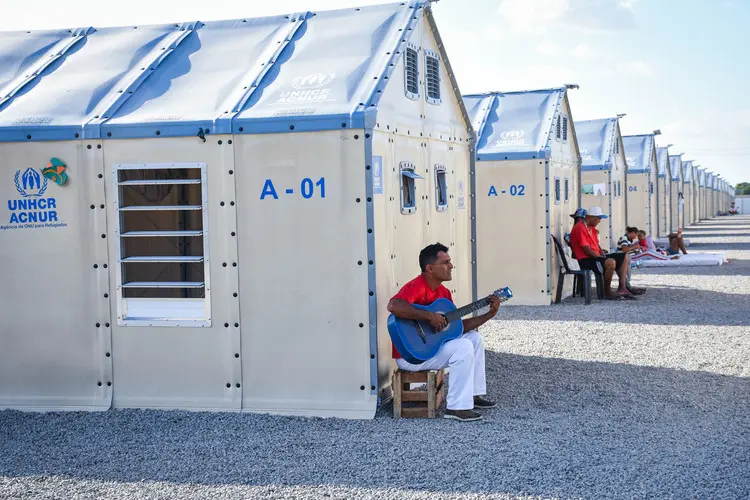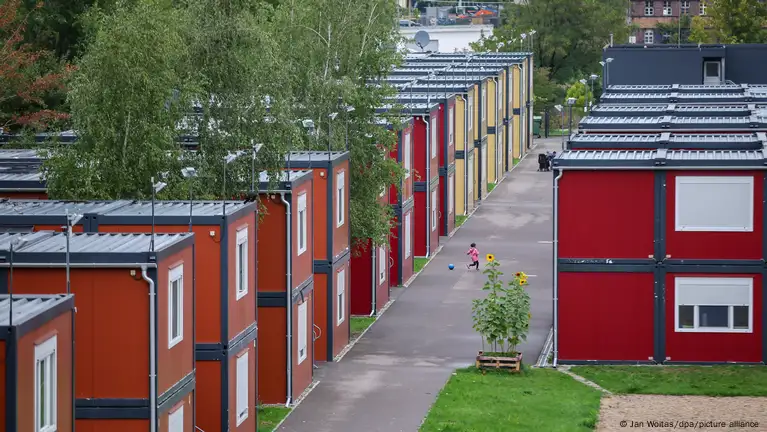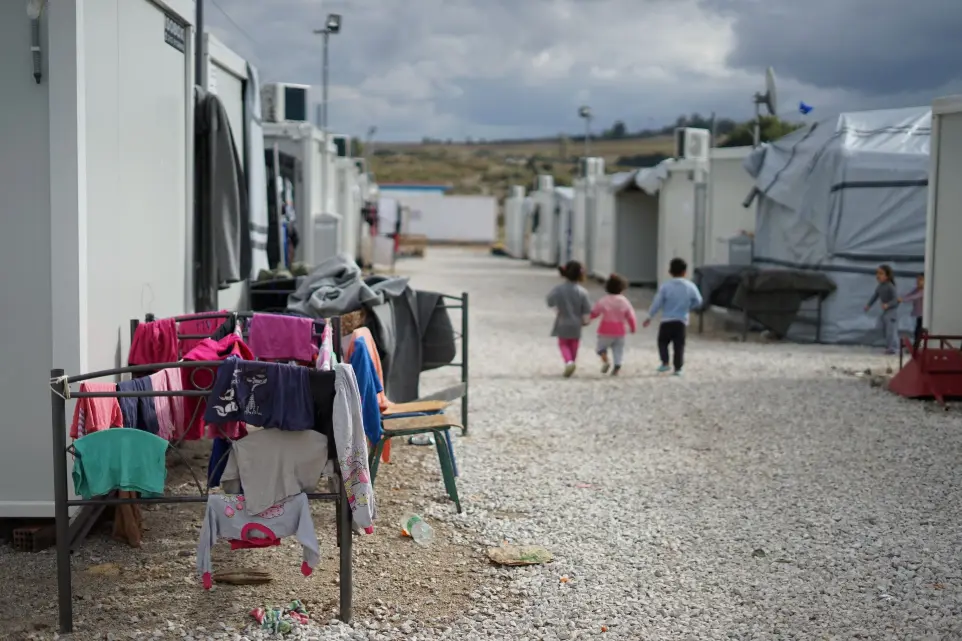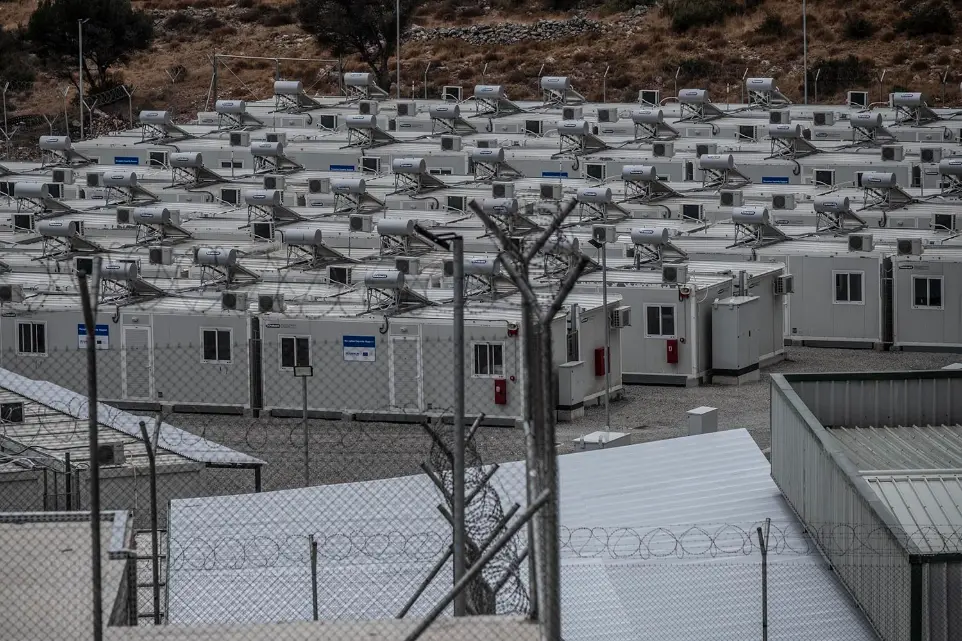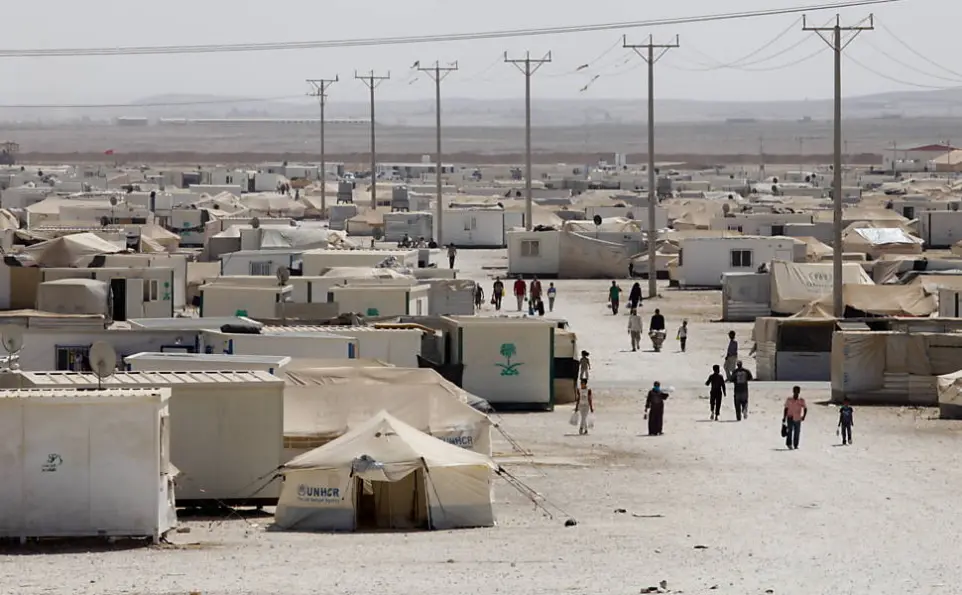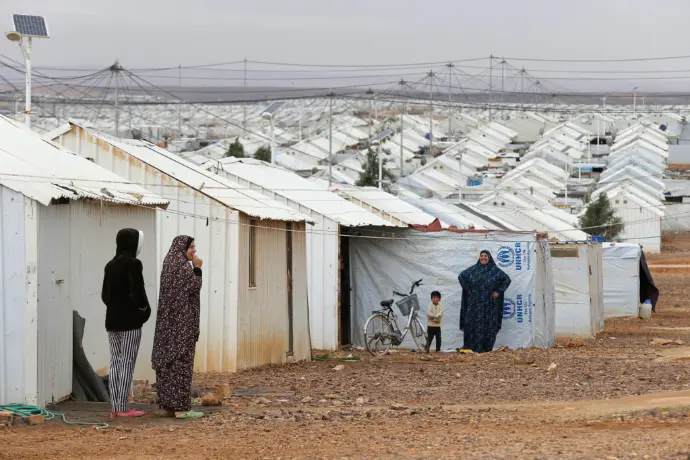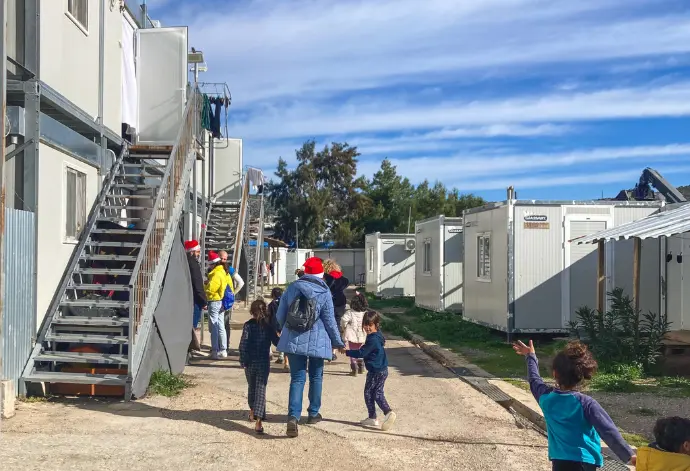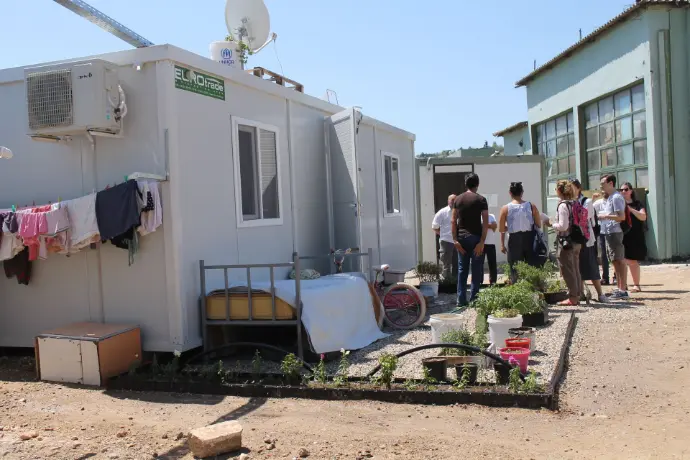"Refugee Urbanization: Challenges and Human Rights," we delve into the challenges and implications of refugee urbanization in today's world. Get ready to discover crucial information on this highly relevant topic.
Introduction
The phenomenon of refugee urbanization refers to the growing number of refugees seeking refuge in urban settings rather than traditional refugee camps. This trend has been increasing in recent decades, and currently more than 60% of refugees worldwide live in urban areas. Refugee urbanization presents unique challenges, as these individuals must navigate the search for housing, employment, access to basic services, and often deal with discrimination and xenophobia.
Refugee urbanization is often the result of the search for economic opportunities, the hope for greater social integration, and the ability to access basic services that are often unavailable in refugee camps. As refugee urbanization continues to increase, it is crucial to understand the specific challenges and needs of this displaced population in urban settings.
The complexity of refugee urbanization requires a detailed analysis of the social, economic, and political dynamics that influence refugees' lives in urban contexts, as well as the need for specific policies and programs to address their needs.
Refugee urbanization poses a significant challenge to human rights globally. Urban refugees often face difficulties accessing housing, healthcare, education, and employment, jeopardizing their well-being and ability to rebuild their lives. Lack of legal status and discrimination in urban settings also contribute to refugees' vulnerability and can exacerbate their marginalization.
Furthermore, refugee urbanization poses challenges for governments and host communities in terms of managing diversity, promoting social inclusion, and protecting the human rights of all urban residents. As refugee urbanization continues to become a reality, it is critical to adopt approaches that protect refugees' human rights and promote their effective integration into urban communities.
Addressing the impact of refugee urbanization on global human rights requires a comprehensive approach that involves governments, international organizations, civil society, and the private sector in the implementation of policies and programs that ensure the protection and empowerment of refugees in urban settings.
In situations of armed conflict, forced displacement and refugee status are shocking realities for millions of people around the world. Violence, persecution, and insecurity force individuals and entire families to leave their homes in search of safety and protection. Both internally displaced persons and refugees fleeing to other countries face significant challenges in terms of access to humanitarian assistance, legal protection, and the ability to rebuild their lives in a safe environment.
The urbanization of refugees in the context of armed conflict poses additional challenges, as these individuals must cope with the aftermath of conflict, lack of resources, and exposure to violence in urban settings. The need to protect the human rights of displaced persons and refugees in situations of armed conflict is crucial to ensuring their safety, dignity, and well-being at a time of extreme vulnerability.
The international community, humanitarian actors, and human rights organizations play a critical role in protecting displaced persons and refugees in situations of armed conflict, as well as in promoting sustainable solutions that address the underlying causes of displacement and ensure respect for human rights in urban and rural settings.
Refugee Urbanization: Challenges
Refugee urbanization poses numerous legal and policy challenges, as refugees move to urban areas in search of opportunities and a better quality of life. However, many countries lack clear laws regulating the situation of refugees in urban settings, which can lead to a lack of legal protection and vulnerability for this population.
Furthermore, the lack of specific policies for refugee integration in cities can lead to social tensions, discrimination, and difficulties in accessing basic rights. Governments and international organizations face the challenge of developing legal frameworks and policies that guarantee the rights of refugees in urban settings, promoting their inclusion and protecting their dignity.
The 1951 Convention relating to the Status of Refugees and its 1967 Protocol establish the fundamental rights of refugees, but these regulations need to be adapted to the realities of urbanization, which represents a challenge for the international community.
Refugee urbanization has a significant socioeconomic impact on both host countries and refugees themselves. At the local level, population growth can strain the provision of public services, housing, and employment, requiring a coordinated response from governments and humanitarian organizations.
On the other hand, urbanized refugees often actively contribute to the local economy, starting businesses, working in various sectors, and bringing cultural and social diversity to cities. However, it is critical that they have decent employment opportunities and access to social protection to ensure their well-being and the sustainable development of host communities.
The socioeconomic impact of refugee urbanization is a key issue on the global agenda, as successful integration into urban environments can generate mutual benefits for refugees and host societies.
Access to basic services, such as health, education, clean water, and housing, is critical to ensuring the well-being of urbanized refugees. However, they often face obstacles to accessing these services, whether due to economic barriers, discrimination, or lack of documentation.
Humanitarian organizations and government agencies must work together to ensure refugees have equitable access to basic services, promoting equal rights and opportunities in urban settings. This involves developing specific programs, raising awareness among local populations, and promoting inclusive policies that address the specific needs of refugees in cities.
Access to basic services in urban settings is crucial to ensuring the dignity and well-being of refugees, as well as fostering their successful integration into urban communities.
The vulnerability of urban refugees is a key concern in the context of refugee urbanization. Unlike refugees residing in refugee camps, urban refugees face additional challenges due to a lack of formal support networks, language barriers, discrimination, and difficulties accessing basic services. This situation exposes them to a greater risk of labor exploitation, abuse, and violence, exacerbating their precarious situation.
The lack of legal status and adequate documentation further complicates the lives of urban refugees, limiting their access to healthcare, education, and formal employment. This vulnerability is compounded by overcrowding in urban areas, which can lead to the formation of informal settlements with precarious living conditions. Furthermore, political and economic instability in many refugee-hosting countries can exacerbate the vulnerability of these individuals, leaving them exposed to insecurity and uncertainty.
The vulnerability of urban refugees highlights the need for comprehensive approaches that address both their immediate needs and their fundamental human rights. It is crucial that governments, international organizations, and NGOs work together to ensure the protection and well-being of urban refugees, as well as to address the underlying causes of their vulnerability in urban settings.
Protecting the Rights of Urban Refugees
Urban refugees face a number of specific challenges in urban settings, where the protection of their rights is critical. Lack of legal status, discrimination, limited access to basic services, and vulnerability to exploitation are just some of the difficulties they face. Human rights defenders play a crucial role in protecting the rights of urban refugees, advocating for their access to housing, education, healthcare, and other essential services.
Furthermore, human rights defenders work to ensure that urban refugees receive fair and equitable treatment in the legal system and are not subject to arbitrary detention or forced deportation. Their work focuses on ensuring that urban refugees are treated with dignity and respect, regardless of their immigration status, and on promoting policies that protect their fundamental rights.
The work of human rights defenders in protecting the rights of urban refugees is essential to creating inclusive and safe urban environments where these populations can rebuild their lives with dignity and hope.
Recommendations and Future Actions
Refugee urbanization requires specific policies and approaches that address the particular needs of this population. It is critical that governments and international organizations develop and implement policies that facilitate refugee integration into urban settings, ensuring access to housing, education, healthcare, and employment. These policies must be geared toward promoting social inclusion and equal opportunities for urban refugees.
Furthermore, it is crucial to adopt approaches that recognize the diversity of refugee communities and consider the specificities of each urban context. The active participation of refugees in policymaking and decision-making is essential to ensure that these measures truly respond to their needs and aspirations.
In this regard, it is essential to promote the creation of spaces for dialogue and collaboration between governments, civil society organizations, the private sector, and the international community in order to design and implement comprehensive and sustainable policies that effectively address refugee urbanization.
International collaboration is essential to provide support to urban refugees. Host countries, together with humanitarian agencies and civil society organizations, must work closely to ensure that refugees have access to basic services and development opportunities in the urban environments where they reside.
Furthermore, cooperation and coordination mechanisms among States must be strengthened to share responsibilities and resources to address the challenges associated with refugee urbanization. International cooperation should also include financial and technical support for programs and projects aimed at improving the living conditions of refugees in urban environments.
Support for urban refugees involves not only the provision of immediate humanitarian assistance but also the design and implementation of long-term strategies that promote their socioeconomic integration and empowerment in cities.
The empowerment of urban refugees is essential to ensure that they can fully exercise their rights and actively participate in the life of urban communities. This involves providing them with access to education, vocational training, and decent employment opportunities, as well as encouraging their participation in decision-making at the local and national levels.
Furthermore, it is essential to promote the economic autonomy of urban refugees by facilitating their access to financial resources, business training, and entrepreneurship support. Strengthening refugees' leadership and organizational capacities is also crucial for them to defend their rights and contribute to the development of their host communities.
The empowerment of urban refugees not only benefits the people directly involved but also enriches the diversity and dynamics of cities, contributing to the social, economic, and cultural development of urban environments.
Conclusions
Refugee urbanization represents a significant challenge to human rights globally. As displaced populations move into urban environments, they face a range of challenges that affect their ability to access basic services, decent employment, adequate housing, and legal protection. Urbanization can also exacerbate discrimination, exclusion, and vulnerability among refugees, directly impacting their fundamental human rights.
Furthermore, refugee urbanization poses challenges for host country governments, which often struggle to meet the needs of local populations and refugees. A lack of resources, adequate policies, and coordination between humanitarian agencies and governments can lead to further marginalization of refugees in urban environments.
In this regard, it is critical to recognize the impact of urbanization on the human rights of refugees and to work toward implementing policies and programs that effectively address these challenges.
The pending challenges related to refugee urbanization are diverse and require comprehensive approaches. It is crucial to address the lack of access to basic services, discrimination in employment and housing, and insufficient legal protection. Furthermore, the integration of refugees in urban settings requires strategies that promote social cohesion and peaceful coexistence among different population groups.
From a future perspective, it is essential that governments, international organizations, humanitarian agencies, and civil society collaborate to implement policies that recognize and protect the human rights of urban refugees. Promoting equality, non-discrimination, and social inclusion are key elements to ensure that refugee urbanization does not lead to greater vulnerability and exclusion, but instead promotes the full enjoyment of their human rights in urban settings.
Refugee urbanization poses significant challenges to global human rights, but it also offers an opportunity to develop innovative and collaborative approaches that ensure the protection and full enjoyment of human rights for this vulnerable population in urban contexts.

 IHRO NEWS
IHRO NEWS